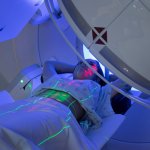
News • Optional treatment
Radiotherapy: no benefits for older patients with early breast cancer
Radiotherapy does not improve survival rates in older patients with early breast cancer, new research suggests.

Radiotherapy does not improve survival rates in older patients with early breast cancer, new research suggests.
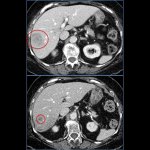
Evidence that radioembolization, a trans-arterial therapy, is safe and stops disease progression in metastatic breast cancer is increasing, a prominent American interventional radiologist showed at the Spectrum conference in Miami.

Immunotherapy prior to surgery is surprisingly effective for patients with a certain type of colorectal cancer (dMMR/MSI-H CRC). These new study results contrast current treatment regimens.
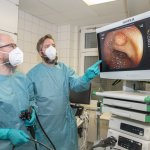
Researchers have now found that artificial intelligence (AI) can improve the effectiveness of colonoscopy in the presence of Lynch syndrome.
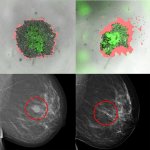
Swedish researchers have developed a method that should be able to predict whether a patient with breast cancer will benefit from a particular treatment or not.

A cancer researcher and consultant has estimated for the first time how many women are living with secondary breast cancer in England – in new research which could help to shape cancer services.

Prolonging life may not be a top priority for everyone: New research finds that patients with neuroendocrine tumours and their doctors often disagree when it comes to treatment goals.

Using fluorodeoxyglucose positron emission tomography (FDG-PET) imaging may give insights into possible dose reductions in ongoing radiation therapy of head and neck cancer. A promising study to explore this option was presented at the 2022 ASTRO/ASCO Multidisciplinary Head and Cancer Symposium held in Phoenix, Arizona.

An international team highlights the importance of localising BRCA1 and BRCA2 gene mutations for the treatment of ovarian cancer.

This summer, The European Commission launched I3lung, a new research initiative as a part of Horizon Europe, the EU’s research and innovation program. This research initiative aims to create a cutting-edge, decision-making tool to help clinicians and patients select the best lung cancer treatment based on each patient’s specific needs and circumstances.

With an estimated one million cancer diagnoses missed across Europe in the last two years, the impact of the Covid-19 pandemic is predicted to set back European cancer outcomes by almost a decade.

New tests can identify over 50 types of cancer and boost detection of traditionally elusive cancers from tumour DNA in blood, researchers showed at the ESMO congress in September. These multi-cancer early detection (MCED) tests in development can spot common cancer signals and predict where the signal comes from in the body, results from a prospective investigation suggest.
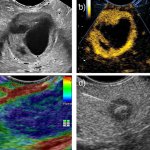
Endosonography poses unique challenges for medical professionals, because two demanding disciplines have to be mastered at the same time. The use of artificial intelligence (AI) could help speed up the notoriously slow learning curve of the procedure, says Prof Dr Christoph F. Dietrich. At the Visceral Medicine Congress in Hamburg, the expert explained how AI can help endosonography achieve…

An advanced radiotherapy technique can be used to safely treat prostate cancer patients in as little as one to two weeks, compared with the current standard, which takes one to two months.
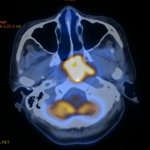
Until now, it was feared that vaccination against Covid-19 could reduce the success of treatment for patients with nasopharyngeal cancer. A recent study now gives the all-clear in this regard.

A new randomized study confirms that men with high-risk prostate cancer can be treated with a moderately shortened course (5 vs. 8 weeks) of radiation therapy.
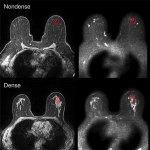
The risk of developing breast cancer is higher in breasts with high density. But why is that? Researchers at Linköping University have shown major biological differences that promote cancer growth.

Patients affected by ovarian cancer can turn to "Olivia": The interactive digital resource provides information about diagnostics, treatment and life with ovarian cancer.

Clinical management of soft tissue sarcoma is particularly challenging. Dr Sebastian Foersch, researcher at the Institute of Pathology at the University Medical Center in Mainz, Germany, has used a deep learning model for diagnosis and prognosis prediction of soft tissue sarcoma using conventional histopathology slides.

As more genomic alterations become targets for therapy, health institutions and hospitals are creating specialist Molecular Tumour Boards to support better decision-making for patient care. This evolving team, and its role, was highlighted in a presentation at the 34th European Congress of Pathology in Basel, Switzerland.
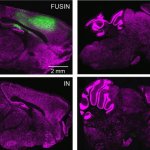
Treatment of central nervous system diseases and tumors is often hindered by the blood-brain barrier. A new method aims to overcome this obstacle using focused ultrasound intranasal delivery (FUSIN).

Many women diagnosed with breast cancer can be cured with surgery, radiotherapy and medical treatment. Swedish researchers explore whether physical exercise can support the anti-tumour effects.

Machine learning and artificial intelligence (AI) have the potential to transform cancer treatment management worldwide. Their ability to rapidly analyse and integrate routinely acquired diverse data will improve the accuracy and effectiveness of precision medical treatments.
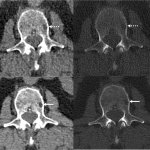
New CT technology paired with artificial intelligence-based noise reduction offers superior detection of bone disease associated with multiple myeloma at lower radiation doses than conventional CT.
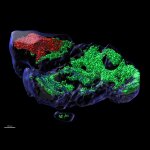
Researchers from the University of Bern and Inselspital provide an overview of the latest technologies in precision oncology. Translating these into clinical application is still a major challenge.